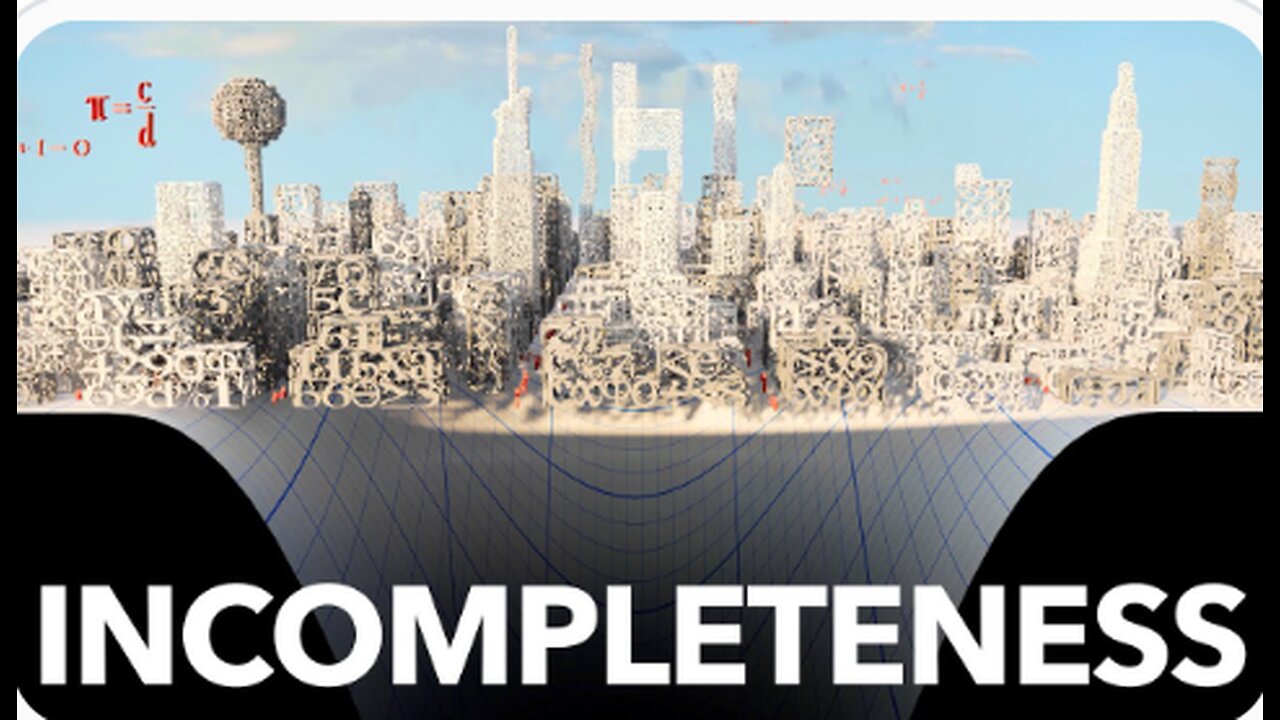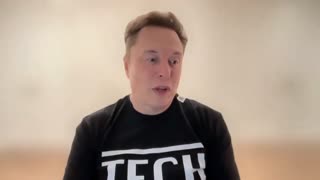Premium Only Content

Math's Fundamental Flaw
Math's Fundamental Flaw
Not everything that is true can be proven. This discovery transformed infinity, changed the course of a world war and led to the modern computer.
Below is chapter 10 of my book "Google LDN !" In it I try to make Gödel’s Incompleteness Theorem understandable to everybody.
10. Gödel’s Incompleteness Theorem
At the risk of losing my audience, I wanted to cover this topic because I feel it underlies my justification for trying to cure my MS in an irrational way. If you start to haze over reading it, please just skip to the next chapter. While I try to explain it in a way that anyone can understand, I’m not sure how good a job I’ve done. I’m actually not sure that a good job can be done…
Gödel’s Incompleteness Theorem is the granddaddy of them all, since it applies to mathematics which lies at the very core of all science. One could safely call mathematics the ultimate Aristotelian “First Philosophy” because it is basic to all science before one adds the particular details of any one science.
Gödel showed that within a rigidly logical system, propositions can be formulated that are undecidable or indemonstrable within the axioms of the system. That is, within the system, there exist certain clear-cut statements that can neither be proved nor disproved.
Hence one cannot, using the usual methods, be certain that the axioms of arithmetic will not lead to contradictions … It appears to foredoom hope of mathematical certitude through use of the obvious methods.
Perhaps doomed also, as a result, is the ideal of science - to devise a set of axioms from which all phenomena of the external world can be deduced.
Thus, Rationalism is by nature self-limited and unable to explain everything that happens to us in the world.
The bottom line is that Gödel’s incompleteness theorem gives me a rational basis to abandon Rationalism as my only source to seek a cure for this multiple sclerosis.
Why does this matter to me? It matters because of the subtitle of this book, “A Rationalist Seeks a Miracle Cure.” While that might appear to be self-contradictory at first, Gödel gives it meaning again.
I remain a rationalist, even though I acknowledge that Rationalism is self-limiting. Rationalism is still the best system ever devised for finding truth. It simply is incomplete, i.e. some truths must be found outside it.
Here’s Gödel’s proof in plain English:
1. Suppose we have a COMPUTER supposedly capable of correctly answering any question.
2. Now consider the following proposition:
“The COMPUTER will never say that this sentence is true.”
1. Now, what happens when we ask the COMPUTER whether that proposition is true?
2. If COMPUTER says it is true, then “COMPUTER will never say this sentence is true” is false.
3. If “COMPUTER will never say that this sentence is true” is false, then the proposition is false (since proposition = “COMPUTER will never say G is true“).
4. So if COMPUTER says the proposition is true, then the proposition is in fact false, and COMPUTER has made a false statement.
5. So COMPUTER will never say that the proposition is true, since COMPUTER makes only true statements.
6. We have established that COMPUTER will never say the proposition is true.
7. So “COMPUTER will never say the proposition is true” is in fact true.
8. So the proposition is true (since the proposition = “COMPUTER will never say that this sentence is true”).
9. We have thus produced a true statement which COMPUTER cannot make.
Therefore…
That ayahuasca may cure my MS, could well be a truth which Rationalism cannot support. However, what matters ultimately, is the truth. Not the method by which we arrive at it.
Bob thinks I have a neurotic and incorrect view of the meaning of Rationalism.
While I may indeed be neurotic, I think I understand rationalism about as well as it can be understood. Warts and all, it’s still the best system we’ve got. It’s just that it has failed me in this particular case. Gödel makes it possible for me to accept this.
-
 26:58
26:58
Joseph Wouk's Channel
2 days agoElon Gives Huge DOGE Updates to World Governments
1.45K1 -
 36:01
36:01
TimcastIRL
17 hours agoThe Green Room #82 - Timcast Discord & Building Culture in the Digital Space with Roma Nation
73.9K12 -
 1:00:59
1:00:59
IsaacButterfield
19 hours ago $2.14 earnedSHOCKING Nurses Rant About Killing Israelis | Kanye Bombshell | USAID Spending
28.8K22 -
 11:38
11:38
MrBigKid
23 hours ago $0.95 earnedSIG 556 Classic SWAT: The Swiss-Inspired Rifle for 'Merica
20.5K1 -
 1:13:32
1:13:32
Tommy's Podcast
2 months agoMedia Decentralization | Sam Anthony (TPC #1,640)
12.4K1 -
 1:01:05
1:01:05
Trumpet Daily
1 day ago $5.24 earnedMEGA Will Backfire on MAGA - Trumpet Daily | Feb. 14, 2025
15.2K20 -
 1:42:23
1:42:23
Game On!
16 hours ago $4.63 earnedEagles Super Bowl Parade EPIC Fail!
36K9 -
 3:29:22
3:29:22
FreshandFit
16 hours agoFresh&Fit After Hours Valentine's Day Edition
186K156 -
 35:31
35:31
SB Mowing
1 day agoThis FORGOTTEN property needed a MIRACLE after nearly a DECADE of ruin
195K53 -
 3:03:44
3:03:44
The Why Files
4 days agoCOMPILATION: Pyramids, Mounds and Mountains
181K89